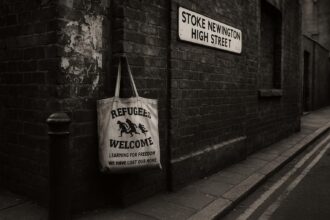Communities Secretary Michael Gove unveils a new framework for identifying extremism, leading to the classification of five groups under heightened scrutiny. Amidst criticism from civil liberty advocates and political figures, the government assures a meticulous process to differentiate ideologies, while concerns grow about the broader implications for political and civil activism.
The UK’s Communities Secretary, Michael Gove, announced a new definition of extremism, introducing a framework aimed at identifying and mitigating extremist ideologies within the country. As part of this initiative, five groups have been initially marked for scrutiny, including three organizations with alleged Islamist connections and two with Neo-Nazi ideologies. The revised definition targets entities associated with violence, hatred, or intolerance, effectively barring them from government funding.
Amid concerns for potential legal challenges from the implicated organizations, civil liberty advocates have criticized the government’s approach, fearing it might suppress dissent. Gove assured that the identification of extremist groups would undergo a meticulous process involving reviews and consultations, distinguishing between Islam and Islamism—the latter defined as a totalitarian ideology advocating for an Islamic state governed by sharia law.
The move has garnered criticism from both political figures and the organizations targeted. Critics like MEND and Cage have announced intentions to legally contest the classification. Opposition figures, such as former Home Office minister Robert Jenrick and Labour’s Angela Rayner, requested further clarity and expressed concerns over the definition’s potential to counteract extremism effectively.
In response to the criticisms, the government has established the new Counter-Extremism Centre of Excellence, tasked with monitoring extremist groups. This initiative provides avenues such as reassessment and judicial review for organizations to contest their extremist label, highlighting the government’s commitment to a transparent and precise process.
The initial list made under this new definition has raised wider concerns about the possible inclusion of additional groups moving forward, spanning across both ends of the political spectrum and affecting various advocacy and activist organizations. Among those mentioned were pro-Palestinian groups linked to Islamist extremism, the “white pride” organization Patriotic Alternative, and the British National Socialist Movement. This broad application has sparked debates on its impact on civil liberties and political activism within the UK, touching on issues ranging from gender politics to environmental activism.













